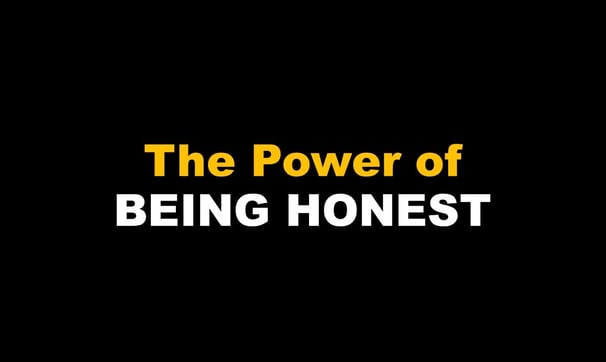The Power of Being Honest
INSPIRATIONFEATURED


"Authentic connections are built on the bedrock of honesty"
In a world often filled with complexity and ambiguity, the virtue of honesty stands as a beacon of simplicity and authenticity.
Honesty is more than just a moral principle; it is a powerful force that can shape relationships, foster trust, and drive personal growth.
In this article, we will explore the profound impact of honesty on individuals and society as a whole.
Honesty begins with oneself. Embracing the truth about our thoughts, feelings, and actions lays the foundation for genuine self-awareness. Acknowledging both strengths and weaknesses allows us to navigate life with a clear understanding of who we are, fostering a sense of integrity that serves as a compass for decision-making.
Authentic connections are built on the bedrock of honesty. When individuals are transparent with one another, trust flourishes, creating a robust foundation for meaningful relationships. Honest communication enables people to share their thoughts and emotions openly, deepening their understanding of each other and forging bonds that withstand the test of time.
In the professional realm, honesty is a cornerstone of ethical leadership. Leaders who prioritize transparency and truthfulness inspire trust and loyalty among their teams. By admitting mistakes and addressing challenges head-on, leaders create a culture of accountability, innovation, and continuous improvement.
The power of honesty extends beyond personal relationships and professional settings; it plays a pivotal role in societal progress. Transparent institutions and governments build trust with citizens, fostering an environment where people feel empowered and engaged. Societal honesty promotes fairness, justice, and collective well-being.
Being honest requires courage, as it often means confronting uncomfortable truths. However, the rewards are substantial. Authenticity in communication fosters a sense of credibility, making it more likely that others will respect and value our perspectives. It is a catalyst for positive change, empowering individuals to address issues and create solutions.
The absence of honesty can lead to a cascade of negative consequences. Deception erodes trust, damages relationships, and creates an environment of suspicion. In contrast, honesty acts as a stabilizing force, preventing the corrosion of trust and ensuring that relationships, whether personal or professional, remain resilient.
Honesty is a catalyst for personal growth and development. When individuals confront their shortcomings with honesty, they open the door to self-improvement. Embracing honesty as a guiding principle encourages a mindset of continuous learning, resilience, and adaptability.
In times of conflict, honesty serves as a bridge to resolution. Open and truthful communication allows parties to understand each other's perspectives, facilitating compromise and collaboration. Honesty is not just about revealing one's truth but also about listening to and understanding the truths of others.
The power of honesty is evident in its ability to break down barriers and foster empathy. When people are open and honest about their experiences, it creates a shared understanding that transcends differences. This shared humanity forms the basis for compassion, unity, and the collective pursuit of a better world.
In conclusion, the power of being honest is transformative at both individual and societal levels. Honesty builds trust, strengthens relationships, fosters personal growth, and paves the way for positive change. As we navigate the complexities of life, embracing honesty as a guiding principle empowers us to live authentically, forge meaningful connections, and contribute to a more just and compassionate world.
Credit: Linkedin
